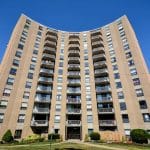The majority of Californians would not be upset if the state relaxed its stringent environmental and land use restrictions in order to boost the short supply of available housing, according to a new poll from the nonpartisan Public Policy Institute of California (PPIC).
In a June survey of more than 1,000 adults, 55% were in favor of easing the current restrictions while 44% insisted that the state maintain the restrictions. This represents a shift in priorities that has been building over the past two decades – in a November 2001 survey, 43% supported easing the restrictions while 53% preferred to maintain the restrictions.
“Opinions on environmental and land use restrictions mirror how Californians feel about reducing state regulations by changing CEQA – the California Environmental Quality Act,” said Dean Bonner, PPIC’s associate survey director and research fellow. “CEQA has guided planning on building projects and land use for over 40 years. About six in ten (59%) Californians favor changing CEQA regulations as a way to make housing more affordable; support for such changes is also widespread at half or more across parties and regions.”
The survey found that Democrats mostly wanted to maintain the restrictions, albeit by a slim margin (51% to 48%) while the easing of the restrictions was favored by most Republicans (64% to 35%) and independents (60% to 39%). Most renters wanted the easing (62% to 37%), while it was near-even split among homeowners.
Regionally, the only section of the state where the majority of respondents were opposed to easing the restrictions was in the Bay Area.
“Whether local or state government should set housing policy is another point of contention in dealing with the crisis,” added Bonner. “Nearly six in ten Californians think the state should require local government to build their ‘fair share’ of new housing that is affordable for the workforce in the region. On the other side, four in ten Californians say that local governments should decide how much and what kinds of new housing to build in their communities, rather than legislators in Sacramento.”

















Most Californians are idiots for staying there. Crime. Cost of living. Wildfires. Insane ideologies. Earthquakes. How good could the weather be? Get out while you can. Let the nut jobs running California live with the consequences of bad governance.
You nailed it.
That’s why we bailed after 25 long years in the Bay Area. And don’t forget to mention that huge portions of your taxes go to special interest group efforts rather than projects that benefit the entire community/state (crap roads, despite highest gas taxes in the US). Did we talk about the fact that it’s near impossible to retire there unless you’ve made it to the top 3%?